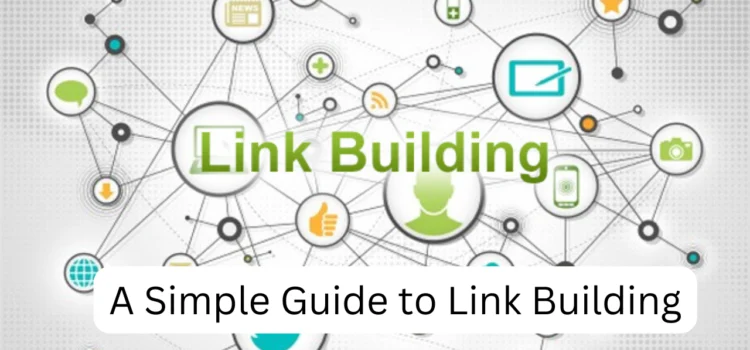Link building stands as one of the most crucial yet often misunderstood strategies. It’s like the backbone of your website’s SEO, playing a pivotal role in determining your online visibility and authority. Here, we will demystify the concept of link building, breaking it down into simple terms for both beginners and seasoned marketers. By the end, you’ll have a clear understanding of what link building is, why it matters, and how to do it effectively.
The Basics of Link Building
Link building is the process of acquiring hyperlinks from other websites to your own. These hyperlinks, often referred to as “backlinks,” serve as digital endorsements or votes of confidence for your website. Search engines like Google use these links to gauge the credibility and relevance of your content. In simple terms, the more quality backlinks you have, the higher your website is likely to rank in search engine results pages (SERPs).
Quality Over Quantity
While the idea of acquiring as many backlinks as possible may seem enticing, it’s crucial to prioritize quality over quantity. It’s not so much about “how many backlinks do I need.” Not all links are created equal. A single high-quality backlink from an authoritative website can have a more significant impact on your SEO than multiple low-quality ones. When building links, focus on websites that are relevant to your niche and have a strong online presence. These links will not only boost your SEO but also drive valuable referral traffic.
The Two Main Types of Backlinks
There are two primary types of backlinks: “dofollow” and “nofollow.” Dofollow links pass on the SEO value from the linking website to your site, helping improve your rankings. Nofollow links, on the other hand, don’t directly influence your SEO but can still drive traffic and build brand awareness. When building links, it’s essential to have a mix of both types. Natural link profiles with a balance of dofollow and nofollow links are more trustworthy in the eyes of search engines.
Ethical Link Building Practices
It’s essential to follow ethical link building practices to avoid penalties from search engines. Unethical tactics like buying links, link farming, or spammy guest posting can harm your website’s reputation and rankings. Instead, focus on creating valuable and shareable content that naturally attracts backlinks. Building relationships with other webmasters and industry influencers can also lead to organic link opportunities. Remember, ethical link building is a long-term strategy that pays off in the end.
The Link Building Process
Now that we’ve grasped the fundamentals, let’s delve into the practical aspects of link building. One of the most effective ways to acquire backlinks is through content creation. Producing high-quality, informative, and engaging content not only attracts your target audience but also encourages other websites to link to your pages. This content can take various forms, including blog posts, infographics, videos, and interactive tools. The key is to offer something valuable that others find worth sharing.
Outreach and Relationship Building
Another essential aspect of link building is outreach and relationship building. Reach out to relevant websites and influencers in your industry. Engage with them on social media, comment on their blog posts, and show genuine interest in their work. Building these relationships can open doors to guest posting opportunities or collaborations that result in valuable backlinks. Remember that successful outreach is about establishing a mutually beneficial connection rather than simply asking for links.
Monitoring and Analyzing Your Backlinks
Once you’ve started building links, it’s crucial to monitor and analyze their performance. Tools like Google Search Console and various SEO software can help you keep track of your backlink profile. Pay attention to factors like the anchor text used in the links, the referring domains’ authority, and the traffic generated from these links. This data can guide your ongoing link building efforts and help you identify areas for improvement.
The Evolving Landscape of Link Building
Lastly, it’s essential to acknowledge that the world of link building is continually evolving. Search engine algorithms change, and new trends in digital marketing emerge. To stay ahead of the curve, keep educating yourself on the latest SEO practices and adapt your link building strategy accordingly. What works today might not be as effective tomorrow. Embrace change and be willing to adjust your approach as needed to maintain and improve your website’s rankings.
Final Thoughts
In conclusion, understanding link building is paramount for anyone looking to improve their website’s SEO and online presence. It’s not about quantity but quality when it comes to acquiring backlinks. Always prioritize ethical practices, and remember that building a natural link profile takes time and effort. By incorporating these principles into your digital marketing strategy, you’ll be well on your way to harnessing the power of link building and achieving long-lasting success in the digital realm.
For more interesting articles visit our freelancing category page.





